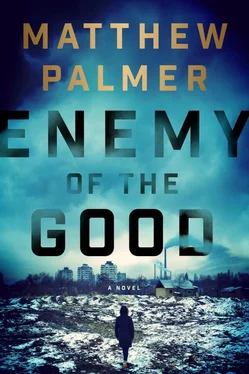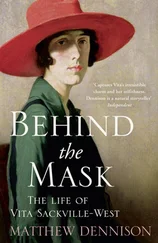He sat across from Kate, his hands resting on the tabletop. His nails, she noticed, were carefully manicured.
“Good morning, Ms. Hollister. I hope you had a good night’s sleep.” He spoke in Russian with that distinctive Georgian accent.
“The bed was a little firm for my taste. But I won’t be staying long. I would like to be released immediately to my embassy. I am an accredited diplomat and inviolate under the Vienna Convention.”
“How interesting. A diplomat, you say? Is dressing up in a stolen police uniform, murdering foreign government officials, and releasing dangerous enemies of the state from lawful confinement part of your country’s normal diplomatic practice?”
“All your questions will be answered in time. You must release me first, and address your questions to my government in writing through a diplomatic note. We will respond appropriately in time.”
“Time. Yes, time. That’s really the key factor here, isn’t it? None of us have as much of it as we would like. I typically like to leave our guests alone with their thoughts for a few days before we begin our discussions, but you see I’m rather pressed for time, so we are beginning a bit on the early side. I hope you don’t mind.”
“Beginning what?”
“Questions and answers, of course. I ask the questions and you answer them.”
“I don’t feel like playing.”
“It’s not a game, Ms. Hollister. And I assure you, we are not playing.”
Chalibashvili’s expression hardened and Kate thought he might hit her. She refused to flinch. But the blow did not come. Not yet. All he was doing was giving her a quick look at the tempered steel beneath the velvet glove.
“Let us begin. Tell me everything you know about Ruslan Usenov.”
“Who?”
This time he hit her.
Not hard. More a slap. A warning. But her cheek stung.
“No games, Ms. Hollister. Maybe you are uncomfortable with open-ended questions. So allow me to be more specific. What is the name of the Boldu spy in the Presidential Palace?”
This time Kate’s quizzical look was genuine.
“I have no idea what you’re talking about.”
“Someone forged the transfer orders for a Boldu prisoner named Bermet Samsaliev. This could only have been done with the assistance of someone in the president’s office. I have… spoken… about this at some length with Ms. Svetlana, the protocol assistant whom I believe you know, and the president’s personal secretary. Both deny their involvement, and I believe that they would have told me what they knew. Under the circumstances.”
Kate could imagine what the circumstances were, and it made her sick.
“I believe, Ms. Hollister, that you were the conduit for this document, passing it from someone in the president’s circle to Boldu. I want to know who it was.”
“Then I suggest you submit that request under cover of a diplomatic note to the American embassy. I will personally make certain that it gets the attention it deserves.”
He hit her again. Harder this time.
“What is Boldu planning? We know they intend to strike a blow against the government. What is it? Who is involved? What is the timetable?”
The questions came hard and fast. Chalibashvili did not even give Kate time to answer them. She sensed that she was not expected to. This was part of the softening up. He asked about Boldu, its membership, and its plans. He wanted to know where the leadership met. Who was in the inner circle. How they communicated with one another. It was a long list, and it was increasingly clear to Kate how valuable the information she had was to the government. It was not a pleasant feeling to be in possession of something that Eraliev wanted.
After an hour or more of questioning, Chalibashvili stood and indicated that Kate should do the same.
“Come with me. There’s something that I think you should see.”
She followed him out into the hall. They walked down the corridor together, almost as though they were colleagues rather than jailer and prisoner. Halfway down the hall they walked past an open door. Inside, Kate could see a steel table with leather restraints built into it. The table was angled backward and there was a plastic jug of water set on the floor next to it. There were shackles on the wall to chain prisoners upright. And Kate caught a quick glimpse of some of the tools of Torquemada’s trade hanging neatly on hooks. Electric cables and leather whips. Pliers and sharp metal probes.
The casually open door was not, Kate knew, a coincidence. It was a threat. Chalibashvili was showing her a stick in the way one might taunt a recalcitrant donkey.
Kate counted the turns. Second right. First left. Third left. They stopped in front of a steel door painted institutional green. The number 374 was stenciled on it in white.
“Do you know whose cell this is?” Chalibashvili asked.
She turned to him and the sharp, sarcastic retort she had intended died on her lips. And Kate realized that she did know. Of course she did. Nothing else made sense. The self-satisfied look on the Georgian’s face confirmed her instinctive understanding. Chalibashvili was enjoying himself. But it was the twisted, icy pleasure of a sadist.
“Yes,” Kate answered. Her mouth was dry.
Chalibashvili opened the slide and stepped to one side. Kate looked through the opening. It was narrow and the view was partly obscured by wire mesh, but she could see a woman sitting on a wooden bench in the cell. She was wearing a standard prison-issue uniform. The woman was thin and her white hair looked to have been cut by herself with dull scissors and without the benefit of a mirror. The skin on her face was flaccid and lifeless.
“Aunt Zamira?” Kate called softly.
The woman did not react. She continued to stare at a spot on the wall in front of her.
“I’m afraid that we keep her drugged,” Chalibashvili explained. “For her own good, really. She’s tried to escape a number of times, you see. I’ve personally watched her blind a man with a fork. I must say I admire your family. Strong women.”
If she had a fork handy, Kate would have gladly driven it through his eye and into his brain.
She studied the woman in the cell. Her aunt’s hair had been black, but it had been more than ten years. She had not been quite so thin, but prison changed people on the outside as well as the inside. This could be her aunt. She had no reason to disbelieve. She looked for something in the cell that would convince her the Georgian was telling the truth.
And she found it.
A small photograph was taped to the wall by the metal cot. It was a picture of Kate and her mother taken almost fifteen years ago. They were standing on top of a mountain with an incredible panorama behind them. The picture was too far away to make out the details, but Kate did not need to see it up close. It was one of her favorite photographs. She had the same one in a small photo album in her apartment.
“Zamira? It’s Kate. I found you.”
For a brief moment, Kate thought her aunt was about to turn and look at her. But the moment passed and Zamira’s gaze remained fixed straight ahead.
“I assure you that she’s of sound mind,” Chalibashvili said. “The drugs we give her are powerful, but there are no lasting effects. Once she stops taking the cocktail she’ll be as good as new in just a couple of days.”
Kate looked at him. She knew what was coming next.
“You can see to that, Kate. All you need to do is cooperate. Tell us what you know. And you and your aunt will be free to go. It’s as simple as that.”
And there it was. The carrot to go along with the stick. Diplomacy was the same. It was based on incentives and disincentives. Evidently it was not dissimilar from torture in this respect.
Читать дальше












